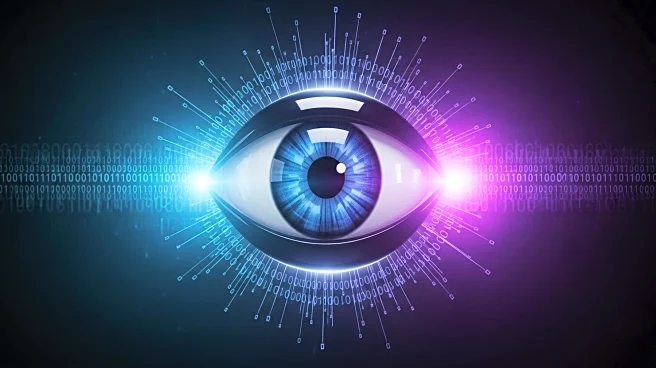What's Happening?
OpenAI's Sora app, a new artificial intelligence tool, allows users to create deepfake videos using their own or others' likenesses. The app, which has become the top iPhone download, enables users to record a short video to create a 'cameo' profile, granting access to friends or the public to generate AI videos. However, the app has sparked concerns over consent, as users do not approve videos before they are created, and notifications are sent only after a video is made. The app's ability to create realistic deepfakes has raised alarms about potential misuse, including harassment and fraud.
Why It's Important?
The Sora app's capabilities highlight significant privacy and ethical concerns in the realm of AI technology. The ease of creating deepfakes can lead to misuse, impacting individuals' reputations and safety. Vulnerable populations, such as abuse victims, could be particularly at risk. The app's approach to consent challenges existing norms, potentially leading to legal and ethical debates about the control individuals have over their digital likenesses. This development underscores the need for robust regulations and safeguards in AI technology to protect users from potential harm.
What's Next?
OpenAI may face pressure to enhance the app's consent mechanisms and implement stricter controls to prevent misuse. Legal and regulatory bodies could scrutinize the app's impact on privacy and consider new legislation to address deepfake technology. Users might become more cautious about sharing their likenesses online, leading to changes in social media behavior. The tech industry may need to develop more comprehensive guidelines to ensure ethical use of AI-generated content.
Beyond the Headlines
The Sora app's rise could prompt broader discussions on the ethical implications of AI technology in society. It raises questions about the balance between innovation and privacy, and the responsibilities of tech companies in safeguarding user data. The app's impact may extend to cultural perceptions of identity and authenticity, challenging how individuals interact with digital representations of themselves.









